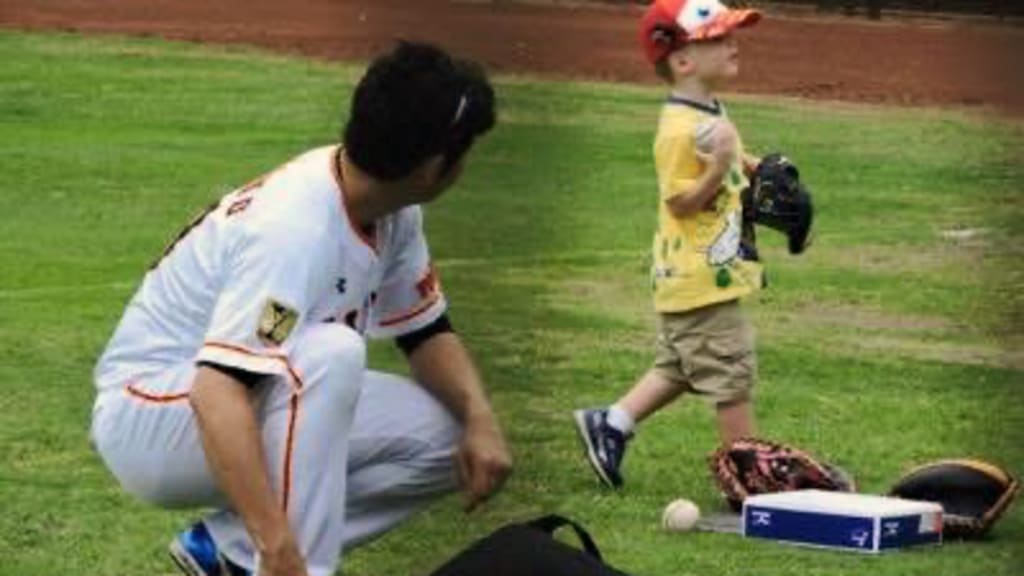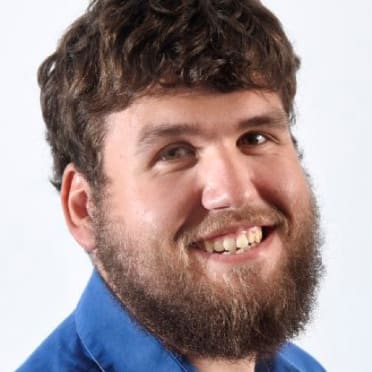This story was excerpted from Jake Rill's Orioles Beat newsletter. To read the full newsletter, click here. And subscribe to get it regularly in your inbox.
BALTIMORE -- From 2013-24, Tomoyuki Sugano was a stalwart atop the Yomiuri Giants’ rotation in Nippon Professional Baseball. Because of his long tenure there, the Japanese right-hander has a long list of former teammates, some of whom were American-born players coming over from MLB.
This year, Sugano has learned what it’s like to be in a similar position as a rookie for the Orioles.
“Usually, it was the other way around, like the guys over here would come to Japan and they must have certain feelings coming over from a foreign country,” Sugano said via interpreter Yuto Sakurai. “But now, I’m in this position where I’m from Japan playing over here, so I kind of thought, ‘Maybe that’s how they felt when they came to Japan.’”
Four of them (three retired MLB players, one active) were recently asked to share their opinions of Sugano during their time together in Japan and to react to his start in Baltimore:
RHP Taylor Jungmann (three-year MLB career, Sugano’s teammate from 2018-19)
RHP Scott Mathieson (three-year MLB career, Sugano’s teammate from 2013-19)
INF Casey McGehee (eight-year MLB career, Sugano’s teammate from 2017-18)
RHP Miles Mikolas (current Cardinals starter and 10-year MLB veteran, Sugano’s teammate from 2015-17)
Here’s the story of Sugano’s journey, from their viewpoint, in their voices.
* * *
The nephew of longtime Yomiuri Giants manager and Japanese Baseball Hall of Famer Tatsunori Hara, Sugano was selected by his uncle’s then-team in the 2012 NPB Draft. He was among the top players in a class that also featured Shohei Ohtani (who went to the Hokkaido Nippon-Ham Fighters).
Mathieson: There was more hype around him than Ohtani for a while.
McGehee: He was a big deal when he got drafted, because his uncle was the manager of the Tokyo Giants and is a legendary Japanese baseball figure. … The Japanese media was all over it, and I can remember getting asked quite a few questions about what I thought of him.
Mathieson: We definitely heard about him and knew about him before we even drafted him. There was always a lot of hype and a lot he had to live up to. … He came in as a rookie with confidence, and he had that aura [that] he was going to be the No. 1 guy, which was pretty impressive for being a rookie coming straight to the Giants.
McGehee: I had kind of a unique perspective of him because his first year [2013], I was over there in my first stint in Japan with a different team [the Tohoku Rakuten Golden Eagles] and saw one of his first outings in Spring Training. And then, fast forward five or six years later, and going back over there for my second stint and playing with him, he had changed. You could see it was a marked improvement from where he was as a young guy to what he ultimately turned into. The run that he was on when I was there was kind of at the peak of his success in Japan.
Jungmann: Just his work ethic, the way that the younger players looked up to him. I mean, over there, man, he was ‘The Man,’ you know?
Mikolas: He was a guy that when I got there, they told me, ‘Watch what this guy does, because he’s the best guy we’ve got.’ So I was always watching his games, watching him pitch, just watching how he went about his business. An incredibly hard worker, an incredibly talented athlete to get to watch go out there and do his thing every day.
Sugano became a two-time winner of the Sawamura Award (Japan’s Cy Young), a three-time Central League MVP and an eight-time All-Star who recorded a 2.43 ERA over 1,857 career innings.
McGehee: He was unique in the fact that he didn’t have the typical repertoire of pitches that you see over there. A lot of those guys there are more four-seam, true curveball, split-finger/fork, whatever they want to call it. He was more two-seam/cutter, slider. He would throw his four-seam from time to time, but he was just a little bit of a different mix to go with the traditional Japanese split-change, whatever he wants to call it.
Jungmann: I don’t want to throw names out there, but when I think of a guy that just knows how to pitch, I’m like, ‘Greg Maddux.’ He could thumb a ball, he can move it left, he can move it right, he can move it down. He just commands the strike zone. Obviously, he’s got more overpowering stuff than a guy like Greg Maddux, but he just knows how to pitch and could really command the strike zone and, basically, would just play with hitters. He just knew how to approach guys and set guys up and things like that with all his different pitches.
Mathieson: Once he started learning how to pitch and learning guys in the league, I mean, he only got better. I think it was his second or third year, you could tell that he was destined to come to the States at some point.
McGehee: I was fortunate enough when I was there the first time to play with Masahiro Tanaka, and that was the year he ended up signing with the Yankees, right after that [2013] season. Both of them kind of had a different aura about them, a super intense demeanor on the mound. They demanded as close to perfection as they could get out of themselves every time they went out there, and [Sugano] was super consistent. It was never a situation where he went out there and just laid a complete egg and got us blown out of a game. Even on not his good days when he didn’t have his great stuff or his best command, he was still able to navigate and keep us in a game and get length without blowing our bullpen up.
Mikolas: His stuff’s incredible.
Sugano’s easygoing personality and friendly nature made equally strong impressions.

Mathieson: That [photo] was actually when my daughter [Brooke] was born. My wife was in Japan -- both my kids were born in Japan -- and they keep the women in the hospital for seven days after childbirth, so my son [Lane] was with me every day. He would come to the field. When I was getting my work in, Sugano would go and play catch with him and babysit him, and some of the other Japanese players. Everybody treated us amazing, and we were always welcome.
Jungmann: I was a guy that asked a lot of questions over there because, one, I was very interested in the cultural aspect of it, and then, obviously, the difference in pitching to Japanese players and foreign players and things like that. So I did talk to him more than most foreign guys. But he would ask me questions about playing in the U.S., as well, because I know that he was interested in that, while I was there.
Mikolas: It’s always tough with the language barrier over there, but he was always super friendly, great teammate. … And we’d have some conversations here and there with the translator where I’d talk to him about pitching and things like that. But overall, just a great guy.
McGehee: There was a definite competitiveness about him. Super hard worker, but was also able to pick his spots to let his guard down and relax and have a good time.
Mathieson: As pitchers, all our lockers were right beside each other, and so I knew him for the whole time he was with the Giants. I’d go back every year and still say hi to him and talk to him. We definitely got to know each other. Everybody was pretty close knit. Baseball in Japan was almost more like the Minor Leagues where you’re closer with everybody, but just on a Major League scale. In hotels there, you don’t stay with your families, you stay with just the team, and you have your whole floors booked off together and you’re at the field a lot longer. So we definitely got pretty close.
On Dec. 16, Sugano’s longtime dream of playing in MLB came true as he signed a one-year, $13 million deal with the Orioles. Through 11 starts, the 35-year-old has a 3.23 ERA in 64 innings.
Mikolas: First thing I said to him when I saw him [last week in Baltimore], I said, ‘You’re late.’ I said, ‘You should have been here four years ago, maybe five.’ When I came back in 2018, I told him every year that I was in Japan, I said, “Hey man, you’ve got to go to MLB. You’ve got some of the best stuff I’ve seen playing baseball.”
Jungmann: When Sugano decided to come over here and sign, I was super excited for him, and I always thought he would do well. I wish he would have come over here four or five years ago to kind of establish himself over here. I know he probably would have liked to, but didn’t get the opportunity. I always thought he would do well over here. A guy that knows how to pitch and has his stuff, you know that’s going to translate. I mean, his stuff translates, whereas some guys don’t necessarily translate as well as he does. I thought he would do well. He’s got four, five, six pitches, and he commands the zone and he’s still got velo. So I think that translates anywhere.
McGehee: My last year playing over there was 2018, and I thought he was going to make the jump around that time. There was no doubt in my mind the stuff was going to play. He just had so many different ways to attack guys.
Mathieson: He had the stuff, but he also had the confidence. I really think pitching in the big leagues is being confident and confident in your stuff. You see a lot of guys with amazing stuff that come over, or just come up from the Minor Leagues, that don’t have success, because they don’t truly believe in themselves. When I first met Sugano, you could tell that he believed in everything he had, and it just kind of seemed like he was destined to be a No. 1 guy there and eventually come over.
